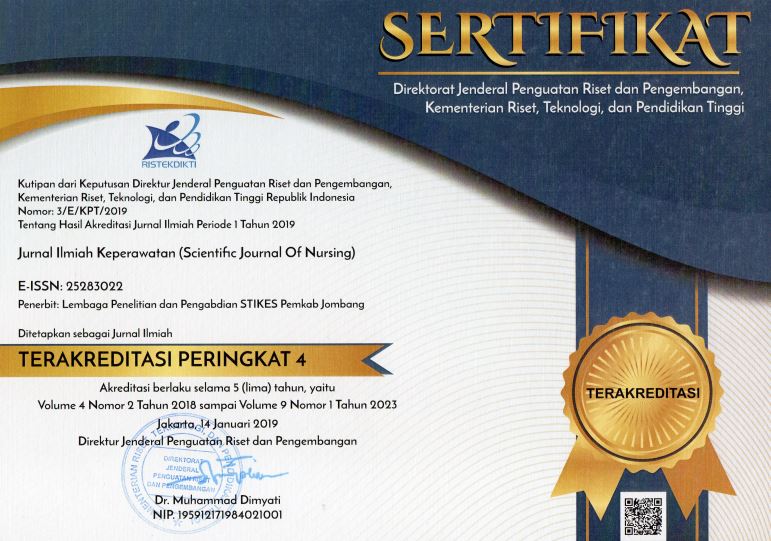Socio-demographic determinants of alcohol consumption among young adults in Indonesia: A cross-sectional analysis of the 2023 Indonesian health survey
DOI:
https://doi.org/10.33023/jikep.v11i1.2501Keywords:
Alcohol consumption, young adults, Socio-demographic factors, Indonesia, rural-urban disparitiesAbstract
Alcohol consumption among young adults in Indonesia is a health problem that is influenced by sociodemographic factors. This study aims to analyze the sociodemographic characteristics of young adults in Indonesia and their association with alcohol consumption. The study design was cross-sectional with data from the 2023 Indonesian Health Survey (IHS). A total of 16,325 young adults aged 18-25 years were included in the study. The main variable analyzed was alcohol consumption. Socio-demographic characteristics such as age, gender, education level, marital status, region, employment status, and place of residence. The chi-square test and multivariate logistic regression were used to examine the relationship between independent variables and alcohol consumption. Significant associations were found between alcohol consumption and gender, education level, marital status and region. Men with lower education levels were more likely to consume alcohol. The highest proportion of drinkers was found in Java and Bali, especially in urban areas. Employment status showed no significant association with alcohol consumption. Socio-demographic factors significantly influence alcohol consumption among young adults in Indonesia. These findings highlight the need for public health strategies to address alcohol consumption. The importance of educational interventions and community-based programs to reduce the adverse effects of alcohol consumption.
Downloads
References
Aydemir, A. B., K?rdar, M. G., & Torun, H. (2022). The effect of education on internal migration of young men and women: incidence, timing, and type of migration. Labour Economics, 74, 102098. doi:https://doi.org/10.1016/j.labeco.2021.102098
Castro, F. G., Barrera, M., Jr., Mena, L. A., & Aguirre, K. M. (2014). Culture and alcohol use: historical and sociocultural themes from 75 years of alcohol research. J Stud Alcohol Drugs Suppl, 75(17), 36-49. doi:10.15288/jsads.2014.s17.36
Cattaneo, A., Adukia, A., Brown, D. L., Christiaensen, L., Evans, D. K., Haakenstad, A., . . . Weiss, D. J. (2022). Economic and social development along the urban–rural continuum: New opportunities to inform policy. World Development, 157, 105941. doi:https://doi.org/10.1016/j.worlddev.2022.105941
Collins, S. E. (2016). Associations Between Socioeconomic Factors and Alcohol Outcomes. Alcohol Res, 38(1), 83-94.
Dixon, M. A., & Chartier, K. G. (2016). Alcohol Use Patterns Among Urban and Rural Residents: Demographic and Social Influences. Alcohol Res, 38(1), 69-77.
Guo, Y., & Li, X. (2024). Regional inequality in China's educational development: An urban-rural comparison. Heliyon, 10(4), e26249. doi:https://doi.org/10.1016/j.heliyon.2024.e26249
Jones, G., & Gu, X. (2024). Men’s Marriage Trends in Asia: Changes and Continuities. Journal of Family Issues, 45(5), 1279-1304. doi:10.1177/0192513x231155656
Kumar, K., Kumar, S., & Singh, A. K. (2018). Prevalence and socio-demographic correlates of alcohol consumption: Survey findings from five states in India. Drug and Alcohol Dependence, 185, 381-390. doi:https://doi.org/10.1016/j.drugalcdep.2017.12.024
Mola, R., de Araújo, R. C., Barbosa, S. A., Almeida, L. S., & Pitangui, A. C. R. (2023). Trends in consuming alcoholic beverages among adolescents and young adults of school age: sexes differences. Jornal de Pediatria, 99(1), 72-78. doi:https://doi.org/10.1016/j.jped.2022.06.003
Munro, J., Parker, L., Rahayuningtyas, D., Fithry, T. S., & Baransano, Y. Desiring Family Ties: Marriage, Class, and Care in the Life Stories of Young, Lower-Class Newlyweds in Indonesia. Ethnos, 1-16. doi:10.1080/00141844.2024.2404855
Orkoh, E., & Blaauw, P. F. (2025). Migration Motives and Employment Outcomes of Ghanaian Migrants: The Role of Skills, Work Experience and Gender. Global Social Welfare. doi:10.1007/s40609-025-00378-6
Pramaunururut, P., Anuntakulnathee, P., Wangroongsarb, P., Vongchansathapat, T., Romsaithong, K., Rangwanich, J., . . . Sakboonyarat, B. (2022). Alcohol consumption and its associated factors among adolescents in a rural community in central Thailand: a mixed-methods study. Sci Rep, 12(1), 19605. doi:10.1038/s41598-022-24243-0
Rahmani, H., & Groot, W. (2023). Risk Factors of Being a Youth Not in Education, Employment or Training (NEET): A Scoping Review. International Journal of Educational Research, 120, 102198. doi:https://doi.org/10.1016/j.ijer.2023.102198
Sudhinaraset, M., Wigglesworth, C., & Takeuchi, D. T. (2016). Social and Cultural Contexts of Alcohol Use: Influences in a Social-Ecological Framework. Alcohol Res, 38(1), 35-45.
Published
How to Cite
Issue
Section
Authors who publish with Jurnal Ilmiah Keperawatan (Scientific Journal of Nursing) agree to the following terms:
- Authors retain copyright and grant Jurnal Ilmiah Keperawatan (Scientific Journal of Nursing) the right of first publication with the work simultaneously licensed under a Creative Commons Attribution 4.0 International License that allows others to remix, adapt and build upon the work with an acknowledgment of the work's authorship and of the initial publication in Jurnal Ilmiah Keperawatan (Scientific Journal of Nursing).
- Authors are permitted to copy and redistribute the journal's published version of the work (e.g., post it to an institutional repository or publish it in a book), with an acknowledgment of its initial publication in Jurnal Ilmiah Keperawatan (Scientific Journal of Nursing).









